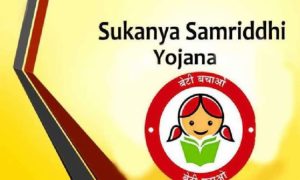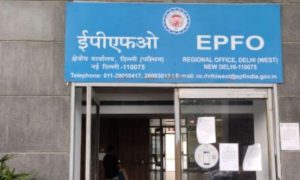New Delhi: In a step to boost India’s growth and help India-US trade recover, India has requested the government of the US restore the GSP status of India that was scrapped by then-US President Donald
New Delhi: In a step to boost India’s growth and help India-US trade recover, India has requested the government of the US restore the GSP status of India that was scrapped by then-US President Donald Trump in 2019. Since then, the issue of restating the GSP status has been a burning issue and has been discussed many times. As of the present scenario, the issue came up at the India-US Trade Policy Forum (TPF) meeting here, co-chaired by Union Minister of Commerce and Industry Piyush Goyal and US Trade Representative, Ambassador Katherine Tai, where India requested the US restate the GSP status.
“Commerce Minister Goyal reiterated India’s interest in the restoration of its beneficiary status under the Generalized System of Preferences program. Ambassador Tai noted that this could be considered, as warranted, in relation to the eligibility criteria determined by the US Congress,” a joint statement issued on Friday night after the meeting said.
India As Beneficiary of GSP Status
India was the largest beneficiary of the GSP status in 2017, with $5.7 billion worth of goods being exported duty-free to the US. About 1,900 products, such as engineering goods, chemicals and textiles, were allowed to enter the US without duty being levied on them.
The ministers also noted that the movement of professional and skilled workers, students, investors and business visitors between the countries contributes immensely to enhancing the bilateral economic and technological partnership.
Minister Goyal Highlights Visa Issue For Visitors
Minister Goyal highlighted challenges being faced by business visitors from India due to visa processing time periods and requested the United States to augment processing, the joint statement said.
Read More: H-1B online filing for FY25 to begin in Feb
They also identified certain areas, including critical minerals, customs and trade facilitation, supply chains, and trade in high-tech products, in which the US and India will develop an ambitious and forward-looking roadmap for enhanced cooperation in order to achieve economically meaningful outcomes.
The ministers committed to pursuing these efforts with a view to establishing the foundation to launch future joint initiatives. They also emphasised their mutual interest in furthering public health discussions to ensure safe and effective medical products.
India emphasises Need For More USFDA Inspections In India
India emphasised the need to increase the number of inspections by the US Food and Drug Administration (FDA) in India to facilitate trade and continue to reduce the backlog. The US appreciated India’s remarks, noting that the FDA has increased staffing to increase pharmaceutical inspections conducted by the agency.
The two ministers also welcomed the strong momentum in India-US bilateral trade in goods and services, which continued to rise and likely surpassed $200 billion in the calendar year 2023 despite a challenging global trade environment.
They acknowledged that, considering the size of their economies, significant potential remains unrealized and expressed their mutual desire to further enhance engagement with the goal of continuing to increase and diversify bilateral trade.
The Ministers reiterated their commitment to ensure that technical regulations, such as Quality Control Orders, do not create unnecessary barriers to trade by providing sufficient opportunities for stakeholder consultations and ensuring that relevant domestic standards align with international standards to the extent feasible.
Read More: Govt reconstitutes EPFO Board; no representative from AITUC, INTUC
The US welcomed India’s efforts to modernize its patent system and registration processes across its IP offices, particularly through recently proposed amendments to the patent rules, which aim to streamline compliance requirements and ease the process of patent filing and granting.





































